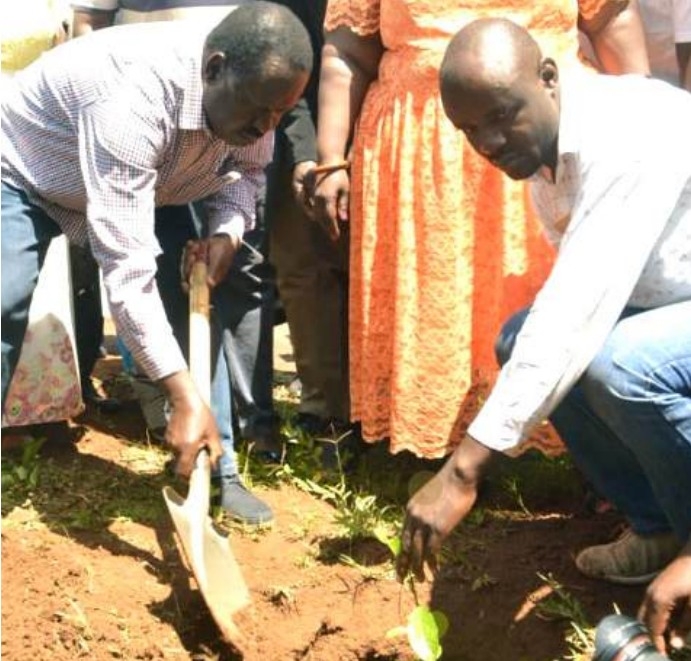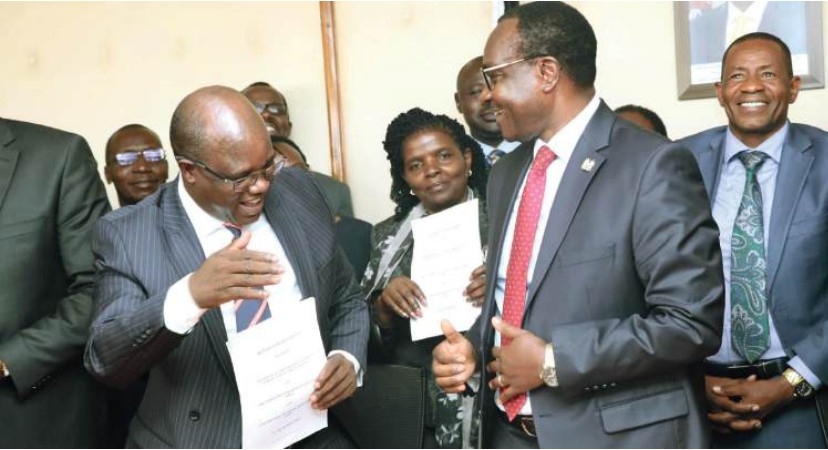In the roughly 10 years that Kenya has had devolved government, I have interacted with quite a few governors in a variety of settings.
Based on such interactions I can make the generalisation that few of them see their role as purely managerial. Their focus is rarely on the provision of effective and accountable management of public funds.
Almost without exception, they seek to be “transformational”: to make a mark and leave a legacy.
I suppose this is only to be expected. When you consider how much trouble a candidate for governor must go through – beginning from roughly 18 months to the next election – it becomes apparent that nobody would go to that much trouble merely to serve as the equivalent of the CEO of a major state-owned corporation.
A certain degree of vainglory has to be part of their psychology; a conviction that they have been summoned by history to play a leading role in moving the nation forward.
This explains why some governors have been spoken of as “regional presidents” by their supporters, and indeed carry themselves around as such, with lead cars mounted with screaming sirens preceding their elaborate convoys everywhere they go.
And where are “their excellencies” likely to be going in most cases? Well, to “launch projects” in fulfilment of their campaign promises, as well as to promote their own “transformation” agenda.
Perhaps no governor in the last 10 years has been better at this kind of thing than the former governor of Machakos county, Dr Alfred Mutua. A verified expert in public communications, he knew exactly what kind of event would receive the best media coverage, and it was on such events that his attention was focused.
I cannot be the only Kenyan who felt disappointed to learn that much of the activity that Mutua engaged in over the past decade was apparently purely an exercise in PR, and not part of any far-sighted transformational agenda, as we had been led to believe.
At a recent meeting of a Senate sub-committee, it was revealed that a report by Auditor General Nancy Gathungu, revealed “a blatant mismanagement of public funds”.
I am not so much concerned here with the things which one senator described as “outright theft through collusion…to get money out of the county government through the back door”. In any event, we must consider Mutua to be innocent of any such alleged theft until proven guilty.
What I found particularly depressing was the sheer number of “stalled projects” – various buildings and dams and stadiums that had been launched with a flourish, and then not taken to completion as “contractors abandoned the site”.
Especially as some of these are projects, which even if successfully implemented, would not have had much of an impact on the lives of ordinary people at all.
For example, Kenya has long had – and continues to produce – world-beating long-distance runners. This was not because we had an elaborate network of world-class stadiums in rural areas where most of these athletes emerge from. We are just lucky enough to have (like Ethiopia too) certain communities that are “genetically gifted” when it comes to the unique qualities required to run fast for a really long time.
Many rich nations, which have long had these elaborate training facilities for their youth, do not produce any athletes who can compete with the Kenyan and Ethiopian runners.
There was also the abandoned site for what was supposed to be “staff houses”. You have to question the application of public funds to such a project, when Kenya has plenty of private sector real estate developers, who would see it as a golden opportunity if allowed to develop such “staff houses” on a guarantee that the county government would rent all the units for their employees.
All this merely confirms my longstanding suspicion that most governors do not prioritise the creation of a serious think tank of technocrats whose advice can help them actualise their dreams of bringing transformational change to their counties.
They mostly go by their own ideas and instincts, and the suggestions of their political hangers-on.














![[PHOTOS] How ODM@20 dinner went down](/_next/image?url=https%3A%2F%2Fcdn.radioafrica.digital%2Fimage%2F2025%2F11%2F99d04439-7d94-4ec5-8e18-899441a55b21.jpg&w=3840&q=100)
